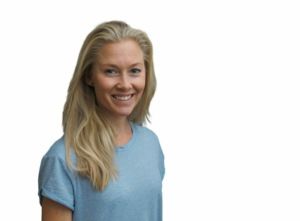Opinion
A Dane Abroad: Drowning in health?
Kirsten Louise Pedersen
This article is more than 7 years old.

A sea of options lies before us, but only by following our inner-guidance can we make the right choice (photo: Pixabay)
We have never had better or faster access to information on health (or anything else for that matter) than we do now.
Information overload
Magazines, the TV entertainment screen at the doctor’s office, Instagram, Facebook, the news, endless blogs and vlogs, and the ever-infinite World Wide Web – the sources seem as varying in quality as they seem many.
We are constantly being exposed to a plethora of options that promise to improve our health: you can take supplements, go Paleo, sleep on magnets, do intermittent fasting, do yoga, go on health tourism holidays, do a liver cleanse, listen to binaural beats, drink Kombucha, go vegan, have a colonic, eat alkaline, use a Fitbit, go Ketogenic, steam your yoni (go on, have a Google!), etc.
So, how do people figure out what is healthy for them, when presented with this bottomless pit of information?
Too many choices
Social psychology professor Dan Gilbert argues that human beings rarely thrive when there is too much freedom of choice. Based on his experimental trials, he concludes that unlimited choice, and the ability to change our selections along the way, can lead to significant dissatisfaction, and not the liberation and happiness than we might expect.
Have we got to the paradoxical point where the huge amount of ‘health’ information available everywhere and all of the time is actually impairing our ability to make good choices?
Human beings are getting fatter and more inactive across the globe, despite all the information at hand. As a health professional I have observed information-overload being the cause of confusion, hopelessness and a lack of trust in inner decision-making skills.
Could this be responsible for a backlash in which people are making even poorer health choices because they are completely overwhelmed?
Time to refocus
Across most of the western world we are not taught about the power of the mind, let alone how to use it as the wonderful tool it was designed to be. For millennia enlightened beings have acknowledged the importance of training the mind in order to cultivate clarity, inner-peace and self-awareness. To a yogi, an untrained mind is like sitting in a driverless carriage with the horses bolting and the reins flying.
Constant feeds of tips, advice, other people’s opinions, trends and even pop psychology can become a distractor rather than an aid – and end up frazzling the mind.
When our focus is scattered, our connection to our own inner-knowing is weakened. The unfiltered information stream of today will continue to flow uncontrollably like lava – what we need to do is learn how to navigate it, so as to not get swept away and overwhelmed by it.
Building inner-peace
Limiting the amount of information we receive by being selective about our sources will greatly reduce the amount of needless processing our minds have to do. Switching off automatic/constant update feeds is a good place to start.
Engaging in mind-discipline activities like meditation makes the mind calmer and clearer, strengthening the ability to discern what is true and right for oneself. Building inner-peace and awareness is the only sustainable solution to getting overwhelmed, as our attention will continue to get pulled off-centre by an ever-accelerating world.
Most of us do not need any more information about health and wellness. We need to begin sorting what we already know, deflecting the white noise, and reconnecting back with ourselves to allow inner guidance to start directing what is really most appropriate for us.

About
Kirsten Louise Pedersen
Born and raised in Denmark and a resident of New Zealand for over 14 years, Kirsten has lived a pretty nomadic life since her early 20s. A physiotherapist, yoga teacher and keen home cook, she is passionate about food, good living and natural health. Follow her on Instagram @kirstenlouiseyoga










































